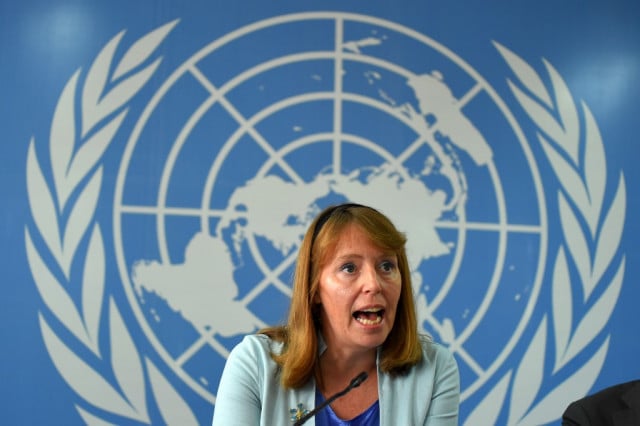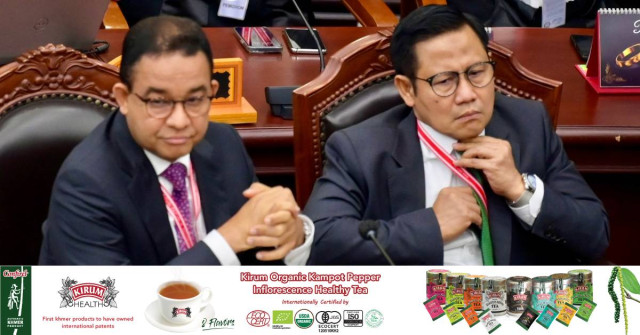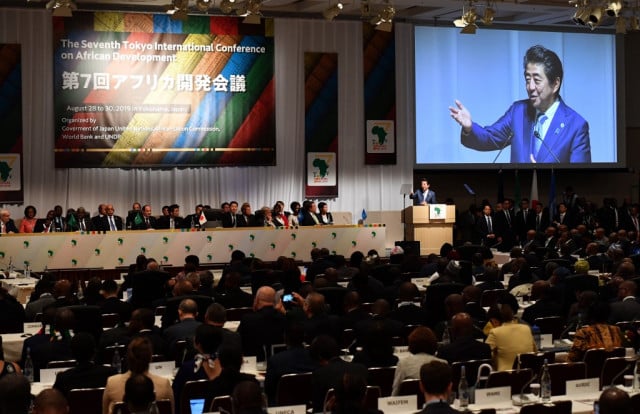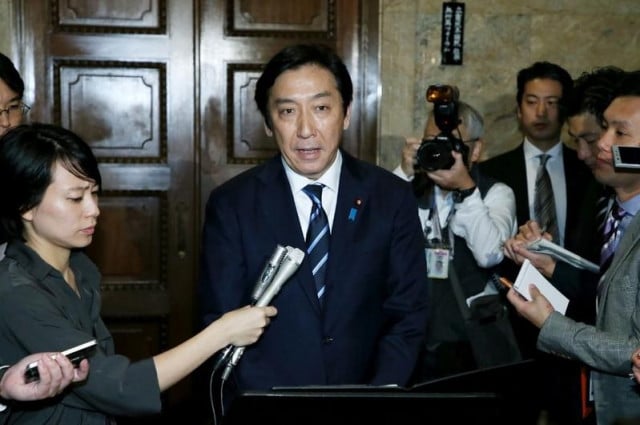UN Special Rapporteur Calls for the Cambodian Government to Review the State of Emergency Draft Law

- Phoung Vantha and Gerald Flynn
- April 16, 2020 7:39 AM
This comes as several international observers have voiced concerns over the proposed law.
PHNOM PENH--On April 9, the United Nations Special Rapporteur on the situation of human rights in Cambodia expressed concerns over the Draft Law on the Management of the Nation during a State of Emergency.
In a letter addressed to the Cambodian government, Special Rapporteur Rhona Smith said that the proposed law would restrict Cambodians’ right to freedom of expression, right to freedom of association and peaceful assembly, as well as the right to movement as provided by the International Covenant on Civil and Political Rights (ICCPR).
“The government’s justifications to adopt the law were centered on the response to the Coronavirus pandemic, the draft law does not appear to be sufficiently focused on measures necessary to address legitimate public health needs,” she wrote in the letter.
Article 5 of the draft law, which was adopted by the National Assembly on April 10, lists a range of restrictions to movement and association, as well as granting sweeping powers to the government allowing them to monitor, observe and gather information from all telecommunications. Prime Minister Hun Sen on March 10 said that the government retains the right to listen in on citizens’ phone calls, should they be deemed a threat to national security.
Of equal concern to the Special Rapporteur is—also listed under Article 5 of the draft law—the right to prohibit or restrict the distribution or dissemination of information if the information is viewed that it may cause fear among the public, or unrest or harm to national security, or cause confusion about the state of emergency.
Concerns were also raised over Article 9 of the draft law that outlines the criminal responsibility of legal entities. The Special Rapporteur’s report pointed out that a lack of oversight mechanisms or safeguards presents a significant threat to civil society and human rights organizations.
In particular, the report noted that the National Assembly and the Senate are inadequate means of scrutinizing the government during a state of emergency—in 2018, the Cambodian People’s Party won all 125 seats in the National Assembly and all 58 seats in the Senate.
The Cambodian government rejects observations made by the UN Special Rapporteur
The spokesperson of the government’s Cambodian Human Rights Committee (CHRC) responded on April 13 to the Special Rapporteur’s letter, saying that the draft law is by nature neither a human-rights violation nor a power-gathering tool. It is a valuable legal tool for the defense of the right to life, peace, social stability and development, the CHRC spokesperson said, adding that it is in line with Cambodia’s commitment to the rule of law and democracy.
“The drafting of the law…is not a particular case for Cambodia,” the spokesman said in the written statement. “[M]any other democratic countries also have this law for governing their own nations in emergencies.” The CHRC spokesman added that the general public should not worry about the wording and enforcement of the law as Prime Minister Hun Sen, the statement read, “manages the situation wisely and responsibly for the national well-being and the Cambodians.”
Also responding to the Special Rapporteur’s letter, Chin Malin, spokesman for the Ministry of Justice, said on April 13 that the draft law does not appear to be a violation of human rights or a power-gathering tool as some people have said. He pointed out that Cambodia ratified in 1992 the International Covenant on Civil and Political Rights, which states that a country must provide equal and inalienable rights to its citizens.
International organizations ask the Cambodian government to modify the draft law
The International Commission of Jurists (ICJ)—an international NGO that consists of 60 senior judges, attorneys and academics—also voiced criticism of Cambodia’s proposed law.
In a statement released on April 8, the ICJ said that the draft law “violates basic rule of law principles and human rights,” and called on the Cambodian government “to urgently withdraw or amend the bill in accordance with international human rights law and standards.”
“If passed in its current form, this bill will reinforce the prevailing lack of accountability which defines the government in Cambodia,” said Frederick Rawsi, the ICJ’s Asia Pacific Regional Director. “The government’s time would be better spent developing genuine public health policy responses to the crisis.”
This sentiment was echoed by Amnesty International on April 2. “These unprecedented powers are wildly disproportionate and threaten to permanently undercut the human rights of everyone in Cambodia,” said Nicholas Bequelin, Amnesty International’s Regional Director.
Suggesting that the bill be rewritten to address COVID-19 in a way that has minimal impact on human rights, he said, “the Cambodian government should be focusing on protecting the right to health through the prevention and treatment of COVID-19.”
The draft law in the process of becoming law
On April 10, the National Assembly unanimously adopted the draft emergency law during its plenary session, giving the government a legal mechanism to run the country during a state of emergency and allowing the authorities to maintain these emergency measures for up to three months.
The law consists of five chapters and 12 articles detailing the powers and measures the government can use to deal with dangers facing the country.
Following the vote at the National Assembly, the draft law is to be reviewed by the Senate and by the Constitutional Council. Once these steps completed, Say Chhum, who is acting head of state while King Norodom Sihamoni is out of the country, is expected to sign the draft law into law.
Trade repercussions
The letter from the Special Rapporteur and appeals by international NGOs come as the country is to see its preferential trading scheme with the European Union affected due to human-rights consideration.
The European Commission is set to withdraw in August roughly 20 percent of Cambodia’s access to the Everything But Arms (EBA) preferential trading scheme, applying tariffs to $1.09 billion of trade due to concerns over Cambodia’s democratic backsliding, and violations of human and labor rights.















